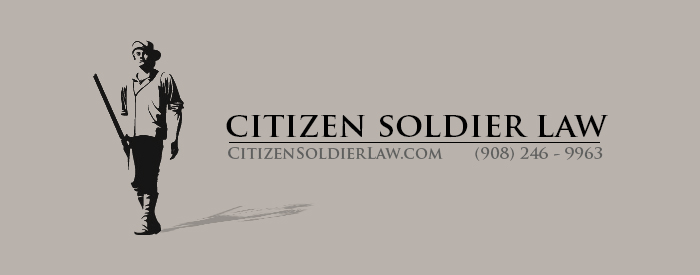- UNDERSTANDING DISCHARGE REVIEW April 28 2014, 1 Comment
Understanding Discharge Review
With a growing number of the American population comprised of Veterans, many are surprised to find that access to services provided by the Department of Veteran’s Affairs (DVA) is precluded by military service that was terminated “under conditions of dishonor.” This is a term of art with the DVA and differs from a dishonorable discharge which is issued as part of the sentence of a general court-martial; it is a term used by the DVA, made independently of the characterization of the veteran’s service by the military. When a veteran applies to the DVA, the DVA typically looks at the character of service stated in the discharge when making its initial decision regarding the Veteran applying for benefits. This determination may be appealed; however, it is equally and typically more useful, to apply for recharacterization of the Veteran’s discharge, referred commonly to an “upgrade.”
What we will do for you
After our initial interview with you, we will have you complete a Standard Form 180, “request pertaining to military records.” If a court-martial is involved, we will need a copy of the record of trial; therefore we will contact the Judge Advocate General of the service concerned for a copy of that record. Each service has different criteria for locating and obtaining the record. In additional, personnel and medical records will be requested, often medical records will assist in having the characterization of service changed. A key document in this process will be your DD 214, which is the report of separation from the Armed Forces.
Once we have received your records we will thoroughly familiarize ourselves with your case, looking for either inequities in your discharge or improprieties. The Department of Defense (DOD) has an extensive system for review of previously executed discharges, both as to the character of service and as to the basis of the discharge. The two principle reviewing authorities are the Discharge Review Boards (DRB) for each service, and the Board for Correction of Military and Naval Records (BCMR).
DRBs may review any discharge that is not the product of a sentence of a general court-martial. The Board consists of military officers, and it holds hearings, at which the Veteran may appear with counsel. These hearings are non-adversarial, meaning the rules of evidence and trial procedure do not apply. Application is made through filing a DD Form 293. It is worth noting that a strictly enforced 15-year statute of limitation is placed on applications to the DRB. The DRB has the power to recommend that the service secretary recharacterize (“upgrade”) a discharge, which means the discharge will be changed from one of stigmatizing character to a nonstigmatizing discharge (either general or honorable). The Board may also recommend the basis for the discharge be changed. Of particular importance is a caveat to the power to the review boards. Vietnam era deserters who requested discharge in lieu of court-martial may have their discharge recharacterized by the review board, but it may not remove the bar to Veteran’s benefits. That power is restricted to a board for correction of military or naval records. Decisions by the DRB may either be confirmed or rejected by the service secretary. Decisions by the DRB may be reviewed by the service Board for Correction of Military or Naval Records. The BCMRs will apply different standards to its review.
The statute empowering the Corrections Boards is codified in 10 U.S.C. § 1552, in general it empowers the Corrections Boards to do anything previously done by Congress in private relief bills. However, the Correction Boards cannot set aside the findings of a court-martial, they may review the sentences alone. These Boards are composed of senor civilians (GS-14 or higher) working in the office of the service secretaries. Application to these Boards is made one a DD Form 149 “Application for correction of military record” pursuant to 10 U.S.C. § 1552. The Board has a wide ranging grant of authority and grants relief premised on the finding of a “probably error” or “injustice,” which lends itself to more equitable attacks on the discharge. There is a three year statute of limitations, however the statute permits the board reviewing applications and granting relief, “in the interest of justice.” The Board decides your case mostly on the existing records and submitted written evidence. Hearings are permitted, but they are under the discretion of the Board and rarely granted. The Board’s final decision can be reconsidered if the reconsideration is premised on the production of new evidence that was previously not taken into consideration. Applications for reconsideration must be filed within one year of the date of the final determination by the Review Board.
Judicial review of the decisions of these Boards is limited. We may seek review either at the Court of Federal Claims, or in the local federal district court under the “Little Tucker Act” 28 U.S.C. § 1346(a)(2), or seek review of the decision itself under the Administrative Procedure Act.

Comments
Philip Swincher on December 16 2014 at 04:30PM
I recieved an OTH discharge while on active duty with the Ohio army national guard. I asked but was denied any type of board, court etc prior to my active duty discharge. I was then kept on m day status for 9 months then with 2 weeks notice was told to appear at an administrative discharge board. There for the first time I meet the jag attorney that was to represent me. Needless to say he was unprepared and frankly didn’t want to be there. I was discharged for inappropriate relationship with an Lt my self a Staff Sergeant. Any help in this matter would be greatly appreciated.